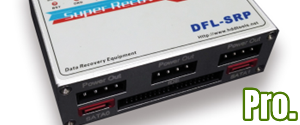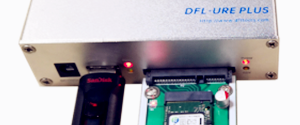What data recovery tools to buy if you want to start a data recovery business?
Free video data recovery training on how to recover lost data from different hard drives?
Where to buy head and platter replacement tools at good prices?
Data recover case studies step by step guide
I want to attend professional data recovery training courses
Who is the best data recovery provider? It doesn’t have to be the most famous one, the most famous data recovery service provider can be very expensive; It doesn’t need to be the cheapest one, the cheapest data recovery service provider can be not professional and causing permanent data loss to your data.
The following data recovery provider suggestions are provided by ontrack Data recovery and you can think carefully about it, as we always mentioned before, information is just for reference, you don’t have to follow it!
 Questions to Ask Data Recovery Service Providers
Questions to Ask Data Recovery Service Providers
Step 1: Identify companies that have the technology and resources to solve a wide array of data loss challenges.
* How long has the provider been in the data recovery service business?
* Does the provider have a clean-room laboratory to safely open, repair and recover data from media storage devices?
* How many recovery labs with clean-rooms, does the provider operate? Does the provider have global coverage?
* Does the provider have a sufficient number of engineers to handle large and complex recovery jobs and handle peak-demand seasons (e.g. hurricane season)?
* Can the provider recover data from systems that are proprietary to their clients? Does the provider have the technology and resources to develop customized data recovery tools if required?
* Does the provider have the expertise to recover data from virtually any type of platform, storage device, database or operating system?
* Does the provider have the resources to perform emergency and/or on-site data recoveries?
Step 2: Identify companies that provide a range of data recovery solutions to fit your specific needs.
* Does the provider have service and/or do-it-yourself software options to fit your budget?
* Does the provider offer a fast enough level of recovery service to address the most urgent data loss situations?
* Can the provider offer a secure remote data recovery service for data loss situations where no mechanical damage has occurred to the storage device?
* What is the standard turn-time required for desktop recovery and laptop data recoveries? For more complex systems?
* Does the provider retain your recovered data for a period of time after the client’s recovery is complete?
Step 3: Identify providers that will provide you with the information required to make an educated purchase decision.
* Will the provider give you a file listing report showing the recoverability of your files before you commit to recovery fees? Is this included in their evaluation service?
* If the provider offers a file listing report, how long will it take them to deliver the report?
* Will the provider commit to quoted price ranges in writing to ensure the services fit your budget?
Step 4: Identify companies that offer professional customer service whenever and wherever you need it.
* Does the provider offer 24/7/365 customer service?
* In which languages does the provider offer customer support?
* Will the provider offer you free, no-obligation consultation and present you with a range of recovery options?
* Will the provider allow you to speak one-to-one with a data recovery engineer to discuss your options?
* Does the provider have a technical support team on staff to offer pre- and post-recovery support?
* Does the provider have online customer portals to allow you to track the progress of your data recovery from start to finish?
Step 5: Identify companies that have well documented and established procedures for maintaining the security and confidentiality of your data.
* Is the provider authorized by private and government entities to handle highly sensitive data?
* Does the provider have the expertise to properly document chain of custody if the storage media is likely to be involved in an investigation or court case?
* Does the provider have the ability to recover encrypted data?
* Does the provider have the ability to return your data in an encrypted form?
* Does the provider perform employee background checks for anyone that may come into contact with your data?
* Does the provider participate in the U.S. GSA (General Services Administration) Program?
* Do the provider’s facilities meet all U.S. Department of Defense specifications?
Step 6: Avoid the gimmicks! Select a data recovery provider you can trust by eliminating those who use questionable sales tactics.
* If the provider offers “free evaluations”, what is included in the free service? Will you receive a file listing report showing which files can be recovered before you are required to approve additional charges?
* If the provider offers “no data, no charge”, what will they charge you if they recover data but not the data that you need.
* If the provider quotes a price range for their recovery service, will they put it in writing?
* Does the provider charge you for parts or are there other hidden fees?
* Does the provider use outside or third parties to perform the data recovery service?
Resource: http://www.ontrackdatarecovery.com
Data recovery Salon welcomes your comments and share with us your ideas, suggestions and experience. Data recovery salon is dedicated in sharing the most useful data recovery information with our users and only if you are good at data recovery or related knowledge, please kindly drop us an email and we will publish your article here. We need to make data recovery Salon to be the most professional and free data recovery E-book online.







1 Comment
Keep posting stuff like this i really like it
[…] data recovery – Google Blog Search : How to select the best data recovery provider? – DATA RECOVERY SALON June 13, 2010 by Kev Who is the best data recovery provider? It doesn’t have to be the most famous one, the most famous data recovery service provider can be very expensive; It doesn’t need to be the cheapest one, the cheapest data recovery service provider … View full post on Data Recovery […]